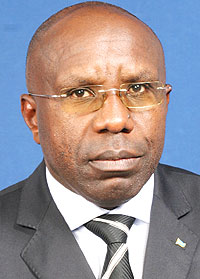DURING THE 1994 Genocide against the Tutsi, hate messages through the media such as Radio Télévision Libre des Mille Collines commonly known as RTLM, Rwanda Radio and print media, like Kangura, played a leading role in mobilising the Hutu to kill all Tutsi and moderate Hutu who were considered as traitors.


DURING THE 1994 Genocide against the Tutsi, hate messages through the media such as Radio Télévision Libre des Mille Collines commonly known as RTLM, Rwanda Radio and print media, like Kangura, played a leading role in mobilising the Hutu to kill all Tutsi and moderate Hutu who were considered as traitors. Even individual journalists like the famous Habimana Kantano, Hassan Ngeze, Valery Bemeriki, the Belgian Georges Ruggiu, and many others actively played a role in mobilising people to commit genocide. The result of this hate propaganda was the loss of more than one million Tutsi in three months.What happened in Rwanda must not happen in any other country. African media need to come up with strong measures to curb hate media on the African continent as one of the strategies to ensure that the media are no longer used to fuel atrocities.Some people may think that preventing hate speech is a violation of the freedom of speech. That is not the case. Freedom of speech does not mean freedom of inciting hatred. In the case of Rwanda, for example, the Constitution and related media laws acknowledge freedom of expression and the right to express one’s opinions, beliefs or ideas, as one of the core values of a democratic society. However, there are other values that have to be protected by society and the law. Therefore, one’s freedom of expression, whether online or through mainstream media, may not be allowed when it contains hate speech.The value of free expression of opinions and beliefs in society has to be weighed against other people’s right to dignity, respect and integrity. The role of journalists in nation building is vital. Therefore, each journalist must contribute in the stability of their country and play a role in fighting whoever may attempt to destabilise its security. All citizens, including journalists, need a secure environment to peacefully carry out their duties and responsibilities. The journalist is to be an educator for their fellow citizens. Journalists have also the mandate to advocate in a constructive manner for the social welfare of society.Africans have painful memories of what hate speech has done on their continent. In addition to the Rwandan case, the Kenyan media were blamed for contributing to the violence that followed the presidential election of December 2007. Other cases are Nigeria, Democratic Republic of Congo, Sudan, South Africa and Egypt where the media are often enlisted as triggers of violenceIt is evident that hate speech is an institutionalised social phenomenon that has gained considerable momentum in the new millennium. In our continent, the instability caused by community conflicts fuelled by the media undermines social progress and slows down economic development. In light of the damage caused by hate media, I urge all media practitioners to renew their commitment and take constructive efforts towards "turning the page of hate media in Africa” as the theme of this event indicates.I understand that African journalists are looking to launch a continental campaign to turn the page of hate media. The Government of Rwanda will support this campaign for its success.This article was extracted from Prime Minister Pierre Damien Habumuremyi’s remarks at the opening of a media dialogue on hate speech in Africa, in Kigali, this week.


